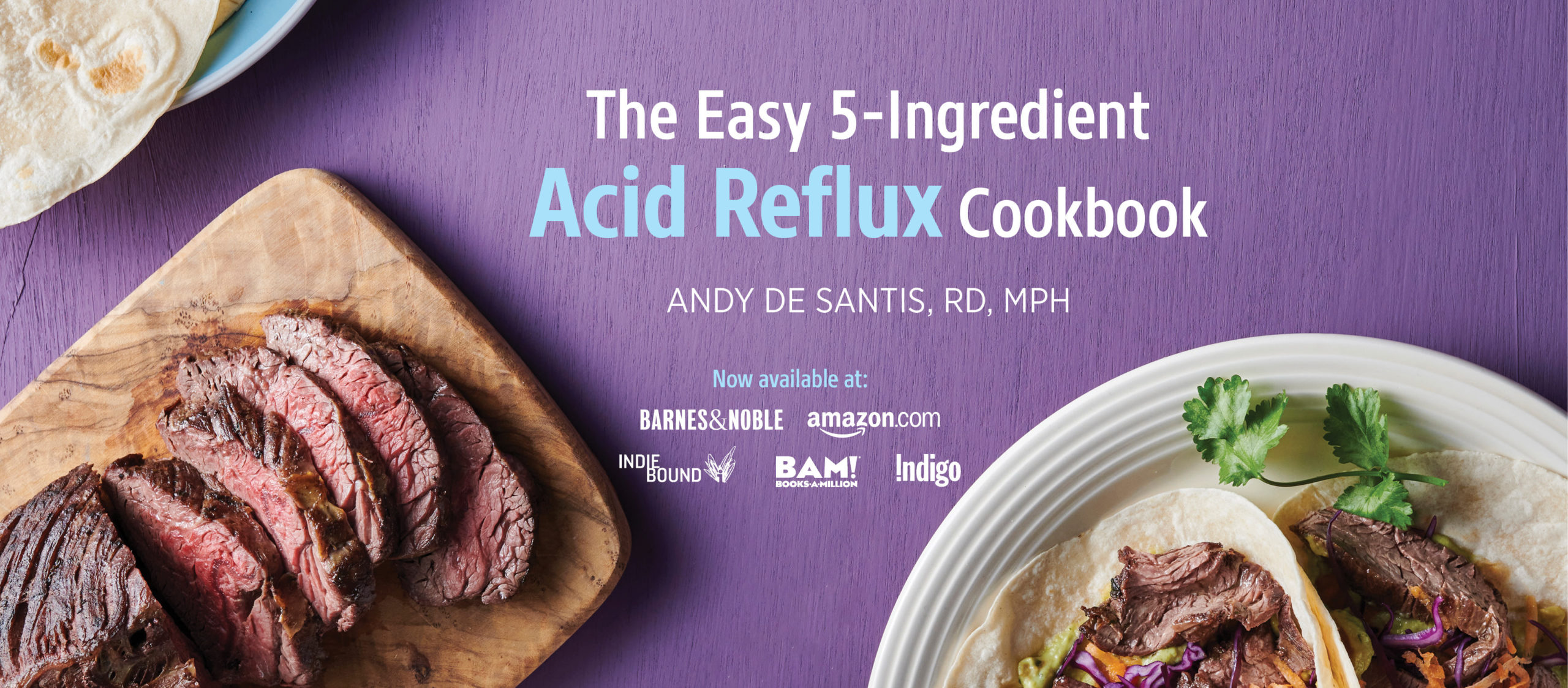As I’m sure you all realize by now, the promotion of my brand new Acid Reflux Cookbook is now in full swing.
The goal of today’s article is to identify some of the dietary habits that are most often associated with acid reflux & GERD prevalence.
I won’t be discussing the common trigger foods associated with acid reflux, because you can find those anywhere and they don’t necessarily apply to everyone.
Instead, today’s content will focus on some of the practical changes you can make to how you eat that will meaningfully reduce the severity and frequency of your acid reflux episodes.
If you find the information below useful, just know that it is only a taste the knowledge and insights ( as well as delicous recipes!) that you can expect to access in my book.
With that shameless plug out of the way, let’s get to the good stuff.
5 Things You Can Change Today To Reduce Your Reflux Risk
Today’s article was inspired by my encounter with a recently published multi-center case-control study out of the Theurapeutic Advances In Gastroenerology journal.
The study compared the lifestyle habits between a large population of people ( 1,500+) who either did or did not have GERD.
While this observational evidence is not necessarily definitive in terms of causation, it does provide some fascinating insights into a number of things that the people living with GERD tend to do more often than people who aren’t.
If you want to avoid those potential pitfalls, you will want to be sure to:
1. Eat Less Quickly – Remember when your parents told you to stop eating so quickly as a kid?
Well, they might have been on to something.
I know many people who are guilty of rushing meals down and cramming them in, which I appreciate in the context of a busy lifestyle.
Unfortunately, it does appear that chronic speed eating can lead to some pretty unfavourable health consequences – including as it relates to acid reflux and more.
For example, a 2018 study out of the Circulation journal found that eating slowly may play an important role in preventing metabolic syndrome.
If you find yourself in the regular position of rushing meals, please read this excellent article on mindful eating from the American Diabetes Association.
Eating slowly may also help you feel fuller faster, which as you will see in point #2, also bears relevance in the realm of GERD management.
2. Eat Smaller Meals/Stopping Before Fullness – Eating large meals and eating beyond comfort & fullness, which may go hand-in-hand in some contexts, are both associated with an increased risk of GERD symptoms.
Further preliminary evidence suggests that the higher the fat and caloric content of a meal, the higher risk of reflux symptoms.
Although I appreciate the appeal of eating a few large meals daily, as I often do this myself, it does not appear to be a potentially risky practice for those who suffer from regular GERD/Acid Reflux.
As far as eating beyond hunger is considered, taking a look at the Hunger/Fullness scale is a strong first step to better understanding your bodily fullness cues.
Focusing more on these cues could be an important step in reducing reflux symptoms.
3. Be Careful When Eating Food That Is Too Hot – While spicy foods have sometimes been considered as “triggers” for a variety of digestive disturbances, the consumption of hot foods, in terms of temperature, have also been correlated with GERD symptoms.
Those who regularly consume foods > 60 degrees celcius in temperature may be doing damage to their esophageal mucosa due to the heat.
So let’s make sure we let our soup cool down!
4. Stop Lying Down After Eating – The act of lying down after eating is often associated with late evening meals and snacks, and is a modifiable behaviour with important consequences for GERD management.
I’ve written previously about the science behind why lying down after meals can be problematic when it comes to acid reflux and overall health and I encourage you to take a closer look at that article to learn more.
5. Eat A More Mediterranean Style Diet – Although more research will be required to make a definitive case, there observational evidence from both the Journal Of The American Medical Association and Diseases Of The Esophagus to suggest that a more Mediterranean dietary pattern may offer protection against reflux symptoms.
If you want to know how to eat a more Mediterranean Diet, please click here.
This style of eating is essentially the equivalent of being Pescatarian with privileges, which is also a wonderful dietary pattern for strong overall health.
Speaking of Pescatarianism, I’ve written a book on that too!
Bonus Tip – Try Psyllium Fibre
Psyllium fibre is a very well studied plant-based supplement that is often utilized in the world of digestive health and known to be helpful in the management of both constipation and diarrhea.
It’s not unusual for acid reflux, GERD and other digestive ailments to overlap, so do not overlook
In the course of the research for my the book, I discovered a pair of studies published in the last several years that demonstrate psyllium supplementation may also be effective at reducing GERD/acid reflux symptoms ( 1, 2).
If you are into more “alternative” treatment styles for acid reflux (ie: less evidence, emerging areas of study) you will want to read my other article on five alternative management strategies – this could be helpful for those for whom the usual strategies do not work.
Hiring a dietitian like myself, who has helped a vast number of people overcome acid reflux, isn’t a bad idea either.
Final Thoughts
My hope is that today’s article has illuminated some of the potentially valuable dietary modifications that one could make to reduce the risk of acid reflux.
If you’ve found this useful, know that is there plenty more where that came from in my boook!
Canadians may click here instead to be brought to the Amazon.ca page.
Until next time,
Andy De Santis RD MPH
Want To Work With Me To Conquer Your GERD? Let’s Chat.




